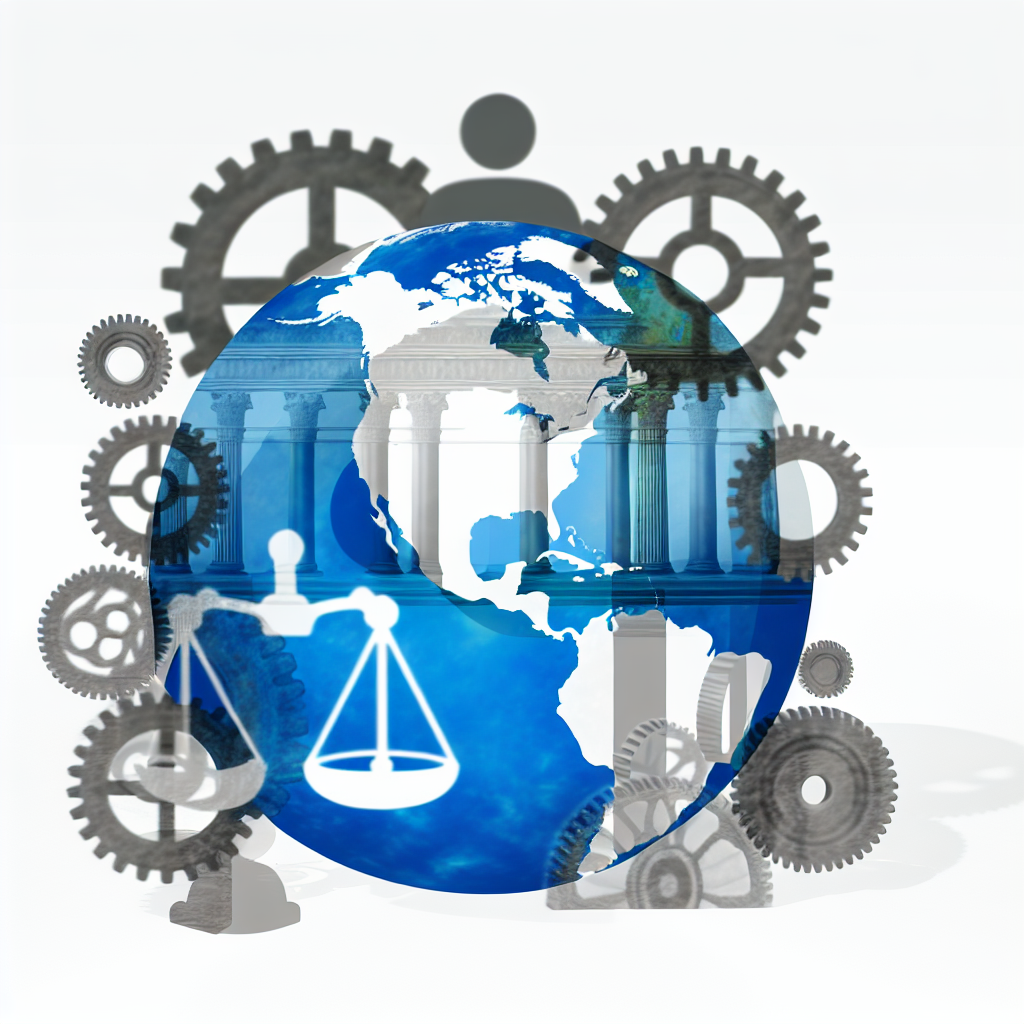
International Law and Geoengineering: Governance Challenges
Introduction
Geoengineering, the deliberate manipulation of the Earth’s climate system to counteract climate change, has sparked considerable debate, especially in the realms of international law and governance. This article delves into the governance challenges associated with geoengineering, highlighting the complex interplay between legal frameworks, ethical considerations, and compliance practices. At The Consultant Global, our expertise and multicultural understanding allow us to guide businesses through these intricate issues effectively.
Understanding Geoengineering
Geoengineering encompasses a range of techniques divided primarily into two categories: solar radiation management (SRM) and carbon dioxide removal (CDR). While SRM aims to reflect sunlight away from the Earth, CDR focuses on removing CO2 from the atmosphere. Both methods, however, carry implications that extend beyond scientific experimentation, affecting legal norms, environmental policy, and international relations.
The Need for Governance
The challenge of governing geoengineering arises from its potential risks and benefits. Without a structured legal framework, geoengineering activities may lead to catastrophic global consequences or unfettered exploitation of natural resources. Governance structures must address:
- Environmental impacts and ecological balance
- International cooperation and consensus
- Regulatory compliance both locally and internationally
Legal Frameworks and International Regulations
As global temperatures rise and climate-related disasters become increasingly common, geoengineering could provide essential tools for mitigation. However, to harness these technologies responsibly, robust legal frameworks are crucial. International agreements, such as the Paris Agreement, lay the groundwork for cooperative efforts but often fail to provide specific guidelines on geoengineering practices.
The Role of International Treaties
Current international treaties primarily focus on emissions reductions rather than geoengineering techniques. Relevant agreements include:
- The United Nations Framework Convention on Climate Change (UNFCCC)
- The Convention on Biological Diversity (CBD)
- The Environmental Modification Convention (ENMOD)
Each of these treaties functions within a distinct scope, often leading to gaps in regulation concerning geoengineering ventures. For instance, while the CBD addresses the preservation of biodiversity, it lacks provisions explicitly catered to geoengineering technologies.
National Regulations and Compliance
Governments must also establish national laws governing geoengineering, often incorporating principles from international frameworks. In the U.S. and U.K., regulatory bodies such as the Environmental Protection Agency (EPA) and the Environment Agency respectively play critical roles in assessing environmental impacts.
In the Middle East, especially the UAE, rapid economic growth and advancements in technology necessitate a proactive approach to governance in geoengineering. Regulatory compliance in this region must respect the diverse cultural and environmental contexts, which The Consultant Global prioritizes in our consultancy services.
Ethical Considerations in Geoengineering
The ethical implications of geoengineering are profound. Questions surrounding the right to manipulate the climate, potential impacts on vulnerable populations, and the distribution of benefits and risks provoke widespread debate.
Equity and Justice
One of the most contentious ethical issues revolves around equity and justice. Historically, developing countries contribute less to climate change yet bear the brunt of its adverse effects. Geoengineering could exacerbate existing inequalities if its benefits are not equitably shared. Moreover, unilateral geoengineering efforts by powerful nations could inadvertently harm weaker states, necessitating global governance standards that prioritize justice and collaboration.
Public Perception and Acceptance
Public perception plays a critical role in the implementation of geoengineering projects. As trust in scientific institutions fluctuates, the importance of stakeholder engagement becomes evident. Transparency and public involvement can shape the governance landscape, ensuring that solutions to climate challenges are socially equitable and culturally sensitive.
Operational Challenges for Governance
The operational complexities associated with geoengineering governance include the need for intergovernmental collaboration, real-time monitoring, and accountability systems to manage various projects.
Intergovernmental Collaboration
Effective governance relies on the cooperation of multiple nations, especially considering the transboundary nature of environmental impacts. International coalitions can help harmonize regulations and share data, leveraging the expertise of organizations like The Consultant Global in fostering such dialogues.
Accountability and Liability Frameworks
Establishing accountability frameworks is vital to managing the unintended consequences of geoengineering initiatives. These frameworks must address liability issues stemming from climate manipulation and clarify the responsibilities of involved parties. Failure to establish clear accountability can lead to disputes among nations and undermine the credibility of geoengineering efforts.
The Role of The Consultant Global in Navigating Governance Challenges
At The Consultant Global, we pride ourselves on our ability to navigate the complexities of international law, particularly as it relates to geoengineering and environmental governance. Our extensive experience allows us to offer insightful guidance to clients navigating these intricate landscapes.
Our team’s multilingual capabilities, including proficiency in English, Turkish, Azerbaijani, Russian, and French, position us uniquely in the GCC and UAE regions, enabling us to work seamlessly across cultures and regulatory environments. We understand that governance challenges necessitate tailored solutions, and our commitment to providing unparalleled consultancy services drives our success in enhancing client outcomes.
Fostering Awareness and Building Capacity
One of our goals is to foster awareness around the governance challenges associated with geoengineering. We engage with policymakers, businesses, and communities to implement education and training initiatives that bolster understanding of compliance and ethical standards. Such efforts help establish a holistic approach to governance that encompasses environmental, social, and economic considerations.
Conclusion
As the world grapples with the pressing challenges of climate change, geoengineering emerges as a potential tool for mitigation. However, the governance challenges associated with these technologies are significant and require careful consideration of international law, ethical implications, and operational realities. At The Consultant Global, we are uniquely positioned to guide our clients through these complexities, ensuring they are on the cutting edge of compliance and ethics in this burgeoning field while fully embracing a diverse and inclusive approach to consulting. Our mission is clear: we aim to become your trusted advisors, successfully elevating your business in an uncertain climate.




Leave a Reply